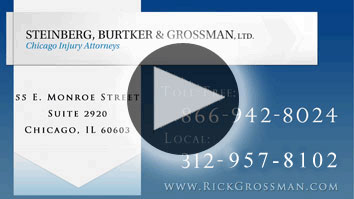Article provided by Illinois Personal Injury Lawyers - Steinberg, Burtker & Grossman, Ltd.
When I settle a personal injury case for one of my clients what follows is a "tug of war" with a medical provider, health insurance company and/or Medicare. These entities seek to recover monies paid for the medical services rendered to the client in connection with the injuries suffered in the personal injury accident. They possess a "lien" against the settlement proceeds recovered on behalf of the injured.
When informed of the lien the client usually asks me: "Why do I have to pay them anything"? The answer is found in the insurance policies, Illinois statutes (rules), case decisions or federal statutes. In effect the laws protect doctors, hospitals, health insurance companies and/or Medicare from either unpaid medical bills or reimbursement for bills already paid. The concept is to prevent the client from obtaining a double recovery for medical bills paid by others. The entities take the position that since they paid your bills, any monies that you recover from the responsible party should be repaid to them first before you receive any balance.
Liens are usually served upon the attorney for the injured and the insurance company representing the responsible party. Should an attorney fail to honor the lien, he or she could be held personally responsible for the payment. If any of the medical bills were paid by Medicare it has what is known as a "super lien". This means that the burden is upon the parties to the personal injury claim to request a lien from Medicare before distributing the settlement funds or face personal liability to the federal government.
As a Chicago injury attorney, the existence of a lien often makes it difficult to settle a claim. In the case of a large financial recovery there is enough money available to make everyone happy. However in many claims the client may have been partially at fault for causing an accident, therefore the settlement offered by a liability insurance company may be justifiable low. If the lien amount exceeds the settlement offered what is a lawyer to do? The answer lies in the experience and skill of the injury attorney to negotiate a reduction in the amount of the reimbursement. You may then ask yourself why should a lienholder reduce its' lien? The reason is quite simple since reimbursement is only due if the client wins there case and recovers money. Without a favorable recover no monies are due the lienholder and it walks away with nothing. My tried and true technique is to convince the lienholder that the my client's case is so weak that if it were tried before a jury we would lose leaving them no recovery. I also advise them that my client has no incentive to settle their case if they know that they will receive little or no money. The usual result is a compromise three way settlement where everyone walks away with money in their pockets.
The law also provides the client with some level of protection by limiting the percentage of money that may be taken from a settlement to reimburse lienholders. Thanks to this rule of law there will usually be some level of compensation available to the client regardless of the attitude of the lienholders.
The good news is that your case has been settled but the bad news is the existence of a "lien".




















